Sun Valley Rising
South Platte River's urban corridor targeted for transformation
Margaret Jackson //July 2, 2018//
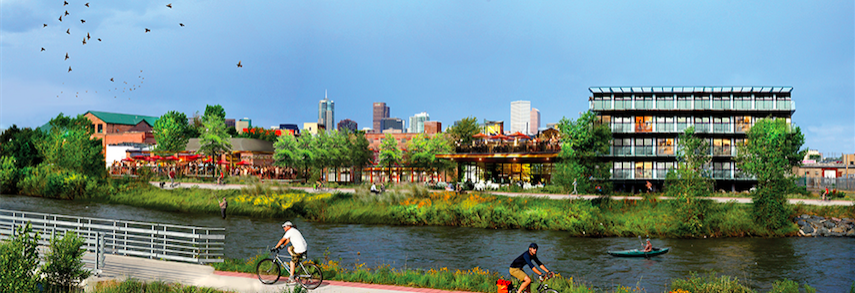

Sun Valley Rising
South Platte River's urban corridor targeted for transformation
Margaret Jackson //July 2, 2018//
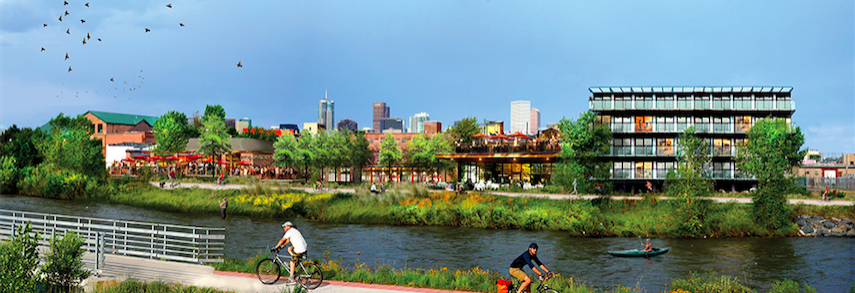
One of Denver’s poorest neighborhoods is on the verge of being transformed into a vibrant cultural and entertainment hub.
The Sun Valley neighborhood, bounded by Interstate 25 on the east, Federal Boulevard on the west, 6th Avenue on the south and 20th Avenue on the north, already is home to attractions like the Children’s Museum of Denver and the Downtown Aquarium. Now, plans are on the drawing board to build new museums, redevelop public housing and add affordable and market-rate housing, as well as offices and other amenities, over the next decade.
In January, Santa Fe-based Meow Wolf announced it will open a $50 million immersive art exhibit expected to attract 1.5 million visitors annually. The new five-story building, designed by Shears Adkins Rockmore Architects, will be wedged into a tangle of viaducts at I-25, Colfax Avenue and Auraria Parkway.
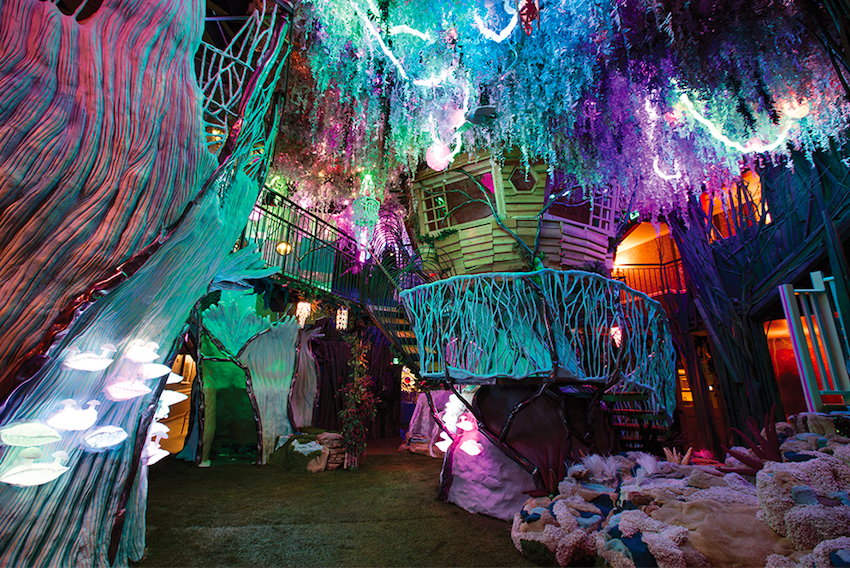
Meow Wolf co-founder and Chief Executive Vince Kadlubek says the art collective was looking for a location where visitors to the museum would not disrupt the neighborhood. There currently are no homes in the immediate vicinity of the Meow Wolf site; the closest residences, at Sun Valley Homes, are about a mile southwest across the South Platte River.
“When we did our search, neighborhood impact was one of the biggest pieces of criteria — especially in Denver, where it’s such an issue anywhere you go,” he says. “We felt like our location was pretty well already contained within what we would call a family attraction zone that has existed for a while.”
Just down the street from the Meow Wolf site is Steam on the Platte, an old industrial building dating back to the 1880s. Steam, on Zuni Street between 14th and Lower Colfax avenues, was among the first redevelopment projects in the neighborhood. Urban Ventures and White Construction Group acquired the property in 2014 from the estate of the late Arvin Weiss, who in 2008 was sentenced to seven years in federal prison after being convicted of fraud and witness tampering in a scheme to cheat mortgage companies that funded federally insured home loans. After being diagnosed with cancer, Weiss was released from prison in 2013; he died soon after.
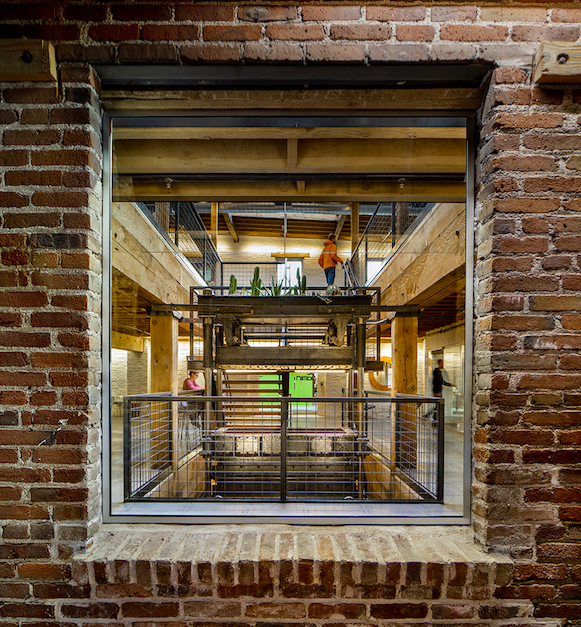
The property had been home to a variety of industrial users dating back nearly 140 years, including the Johnson and Bremer Soap Factory and a rag-baling facility. When Urban Ventures and White Construction bought it, two illegal marijuana grows were operating there, and the Evil Souls motorcycle club had taken over part of one of the buildings as its clubhouse.
Urban Ventures and White Construction have created a mixed-use project on the site that has attracted office tenants who started moving in last year. There’s also a café operated by Girls Inc., a national nonprofit that inspires girls to be strong, smart and bold. At full buildout, the entire site will hold 190,000 square feet of office space, as well as a 6,000-square-foot restaurant and about 100 new residential units.
Steam is within walking distance of the Auraria campus and the Broncos’ stadium; it’s also at the intersection of the Lakewood Gulch and Platte River bike trails and a short walk to the light rail stations at Decatur-Federal and West Auraria.
Urban Ventures President Susan Powers says she became interested in the site when the city started working on the station area plan around the Decatur light-rail stop about five years ago.
“We knew that this was really the growth area from downtown, because it’s just the logical place,” she says. “And for us, the river was really key. It’s unusual to find any property you can build right up to the river.”
Then there’s Adrianna Abarca’s plan to redevelop four pastel-colored buildings owned by her family into the Latino Cultural Arts Center. The site was the former headquarters of Ready Foods, a custom food processor founded in 1972 by her late father, Luis. The collection of Mexican and Chicano art that she and her father spent decades accumulating will be permanently displayed at the center in the Mexican Heritage Museum.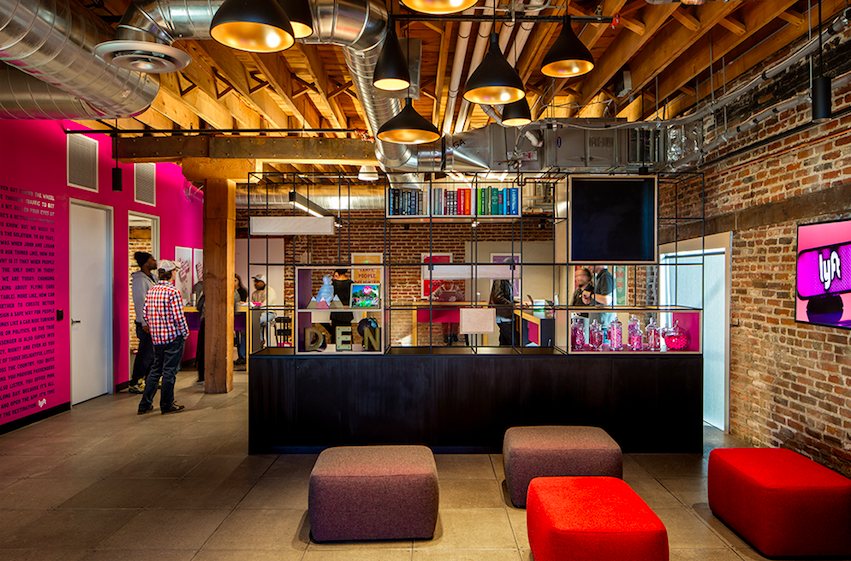
In addition to the museum, the Latino Cultural Arts Center will include street-level retail, a coffee shop and cantina/cerveceria, classrooms, a library, event space and a small auditorium. A second phase of the project, which will be housed in more Abarca-owned buildings at West Eighth Avenue and Decatur Street on the south end of Sun Valley, will add the Sun Valley Academy of Latino Cultural Arts, which will instruct students between the ages of 16 and 24 in performing visual and culinary arts, as well as music and the spoken word. There also will be street-level retail and dormitory spaces for visiting artists.
“Because of gentrification, I want to make an effort to cement the Latino heritage in the community,” Abarca says. “It’s important not to feel like an outsider when your history is here.”
Sun Valley isn’t likely to lose its Hispanic heritage any time soon, though. Latinos account for about 54 percent of its 1,500 residents. The Sun Valley Homes complex, located on 22 acres in the shadow of Mile High Stadium, is slated for redevelopment, and the Denver Housing Authority has designed the project so that those residents won’t be displaced, even as the number of people living in the area doubles.
Sun Valley’s revitalization also includes the Denver Broncos’ plan to build a $351 million entertainment district with retail, commercial and residential developments, though the Metropolitan Football Stadium District has characterized discussion of that plan as premature.
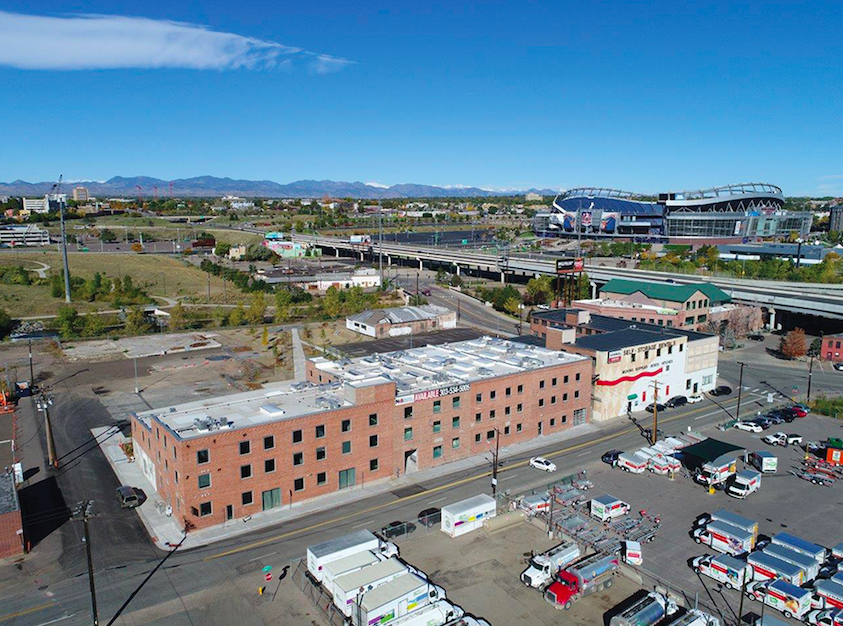 And though it’s not technically in Sun Valley, the Elitch Gardens Theme and Water Park is close enough to have an impact on the neighborhood. Revesco Properties, in partnership with Second City Real Estate and Kroenke Sports & Entertainment, paid $140 million for Elitch’s in 2015; the site later chosen by Meow Wolf was part of that deal. The Revesco team has been waiting for the city to amend its circa 2007 Downtown Area Plan for the land between I-25, Auraria Parkway and Speer Boulevard before requesting a zoning change that will allow it to develop the 17 acres of surface parking lots around Elitch’s as The River Mile, a dense, walkable mixed-use development with high-rise buildings and green space.
And though it’s not technically in Sun Valley, the Elitch Gardens Theme and Water Park is close enough to have an impact on the neighborhood. Revesco Properties, in partnership with Second City Real Estate and Kroenke Sports & Entertainment, paid $140 million for Elitch’s in 2015; the site later chosen by Meow Wolf was part of that deal. The Revesco team has been waiting for the city to amend its circa 2007 Downtown Area Plan for the land between I-25, Auraria Parkway and Speer Boulevard before requesting a zoning change that will allow it to develop the 17 acres of surface parking lots around Elitch’s as The River Mile, a dense, walkable mixed-use development with high-rise buildings and green space.
“We’re bringing the city to the river’s edge in a way the city hasn’t seen,” Revesco CEO Rhys Duggan says. “We’re building density where it makes sense and leveraging our investment in light rail.”























